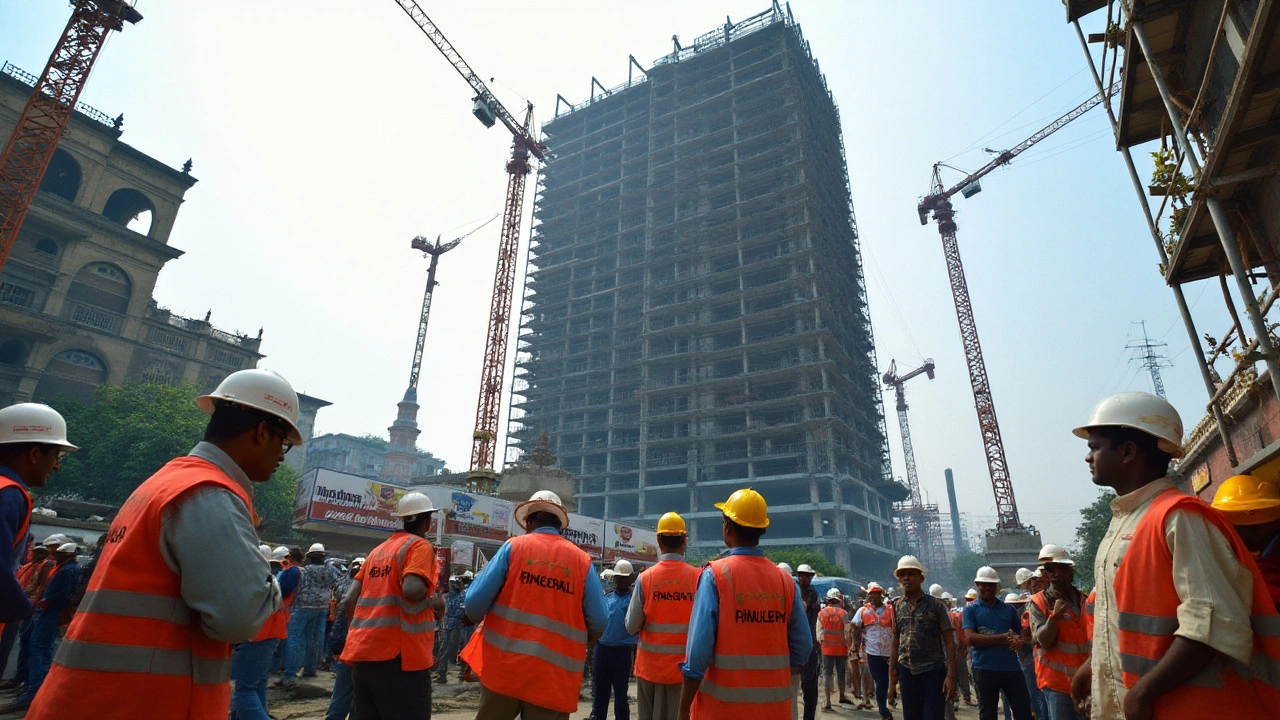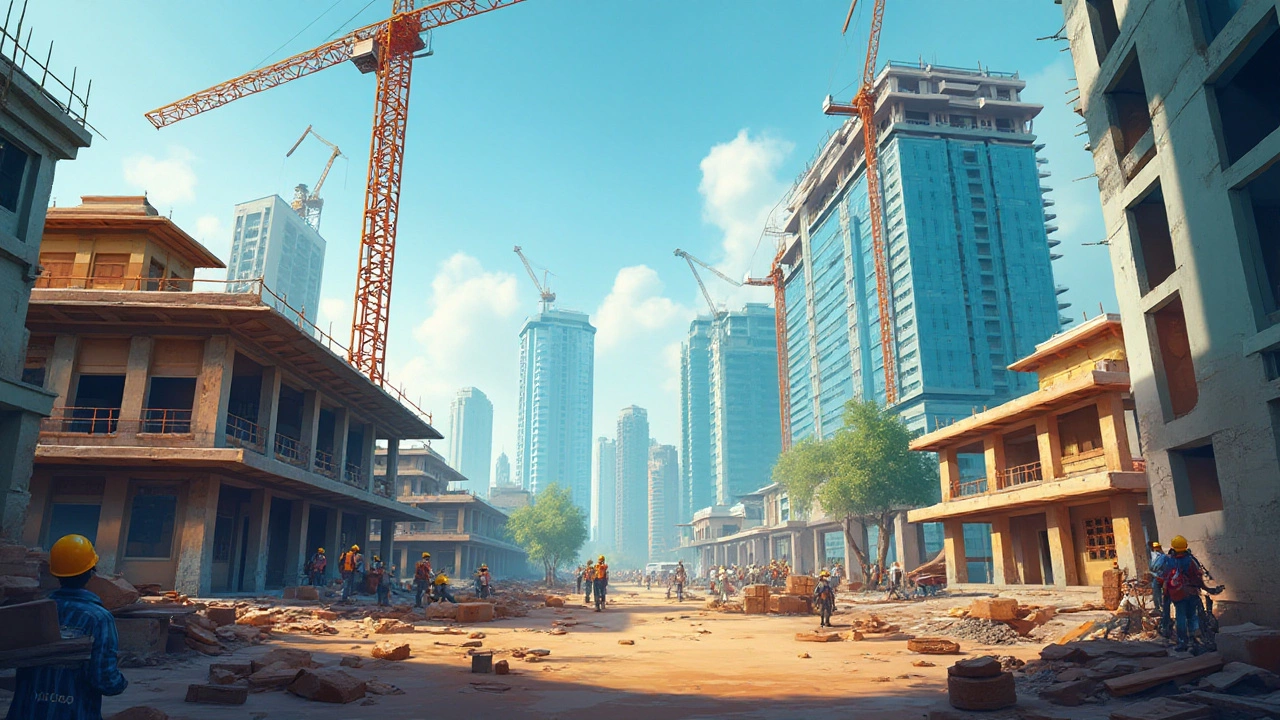Construction Industry Insights: Practical Tips and Trends
If you’re digging into a building project, you probably have a million questions. What material will last? How do you keep costs low? Which contractor will show up on time? This guide answers those questions and gives you quick, usable advice you can apply today.
We’ll keep things simple: no jargon, just the stuff you need to decide, plan, and finish a project without headaches. Whether you’re a first‑time homeowner or a seasoned builder, the steps below will keep you on track.
Why Choosing the Right Materials Matters
Material choice drives durability, look, and budget. For floors and walls, high‑quality ceramic tiles, like those from KSR Ceramics, offer a mix of strength and style that works in kitchens, bathrooms, and even outdoor patios. They resist water, are easy to clean, and come in many designs, so you can match any décor without spending a fortune.
When picking structural materials, think about local climate. In humid areas, moisture‑resistant plaster and treated wood reduce future repair costs. For fire safety, metal studs and fire‑rated drywall add protection without a big price jump.
Don’t forget the hidden costs. A cheap floor tile might look good now, but if it cracks early, you’ll spend more on replacement and labor. Investing a little more in a reputable brand cuts long‑term expenses and gives you peace of mind.
How to Work Effectively with Contractors
Finding the right contractor is like dating – you need to ask the right questions and watch for red flags. Start with a shortlist of three firms, then request detailed quotes that break down labor, materials, and any extra fees.
Ask for references and actually call them. A contractor who’s transparent about past projects will gladly share feedback. Look for signs like consistent timelines, clean work sites, and willingness to explain their process.
Set clear milestones before work begins. For example, approve the foundation repair, then move to framing, and finally to interior finishes. This step‑by‑step approach helps you spot delays early and keeps the budget in check.
Communication matters. Use a simple spreadsheet or a shared app to track tasks, payments, and any changes. If a surprise pops up – like a hidden pipe – discuss options immediately instead of letting it linger.
Lastly, protect yourself with a written contract that lists insurance, warranties, and a timeline for completion. A solid agreement saves both parties from misunderstandings and makes it easier to enforce quality standards.
By focusing on smart material choices and clear contractor relationships, you can steer any construction project toward success. Remember, the goal isn’t just to finish – it’s to finish right, on time, and within budget.
Ready to start your next build? Take these tips, apply them to your plan, and watch the process become smoother. Good luck, and enjoy watching your vision turn into reality.
Is Construction Commercial or Non-Commercial?
Ever wondered what makes a construction project commercial or non-commercial? This article explores the differences, highlighting essential factors like purpose, scope, and funding. Learn about the types of projects, the specifics of commercial construction, and tips for navigating the industry. Gain insight into how these projects impact communities and the economy, making this complex topic digestible and insightful.
Continue ReadingUnderstanding Commercial Projects in Construction
A commercial construction project involves the creation or renovation of buildings for businesses. These buildings are used primarily for commercial activities such as retail, office, or industrial purposes. The process includes planning, designing, budgeting, and following specific guidelines to meet the industry standards. This article explores the essential components of commercial projects, their significance, and factors influencing their development.
Continue ReadingTop Construction Giants: Unveiling the Biggest Players of 2024
As the construction industry continues to evolve, a few giants stand out due to their immense influence and capability in shaping landscapes globally. In 2024, several companies have emerged at the forefront, pushing technological boundaries and leading mega-projects. The article delves into these major construction players, highlighting their projects, innovation in design, and global impact. Understanding who these companies are and what they do can provide valuable insights for industry professionals, investors, and curious minds alike.
Continue ReadingKey Differences Between Residential and Commercial Construction
Understanding the major differences between residential and commercial construction is crucial for professionals in the building industry. This article explores the distinct features, purposes, and regulations that separate these two types of construction projects. From design considerations to the types of materials used and the legal requirements, each aspect plays a significant role in how buildings are designed and constructed. Readers will gain insights into the unique challenges and opportunities associated with both residential and commercial projects. This knowledge is essential for anyone involved in planning, designing, or managing construction activities.
Continue Reading


